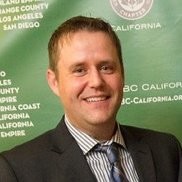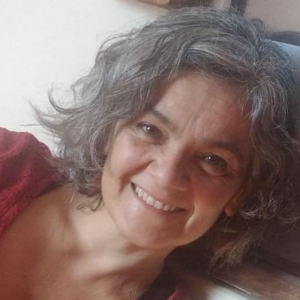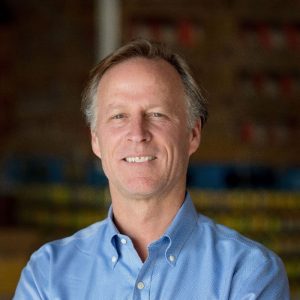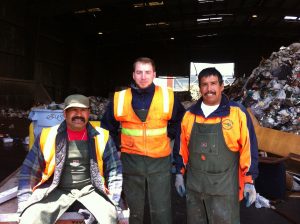If you would like to join as a non-tabling participant please register with WildApricot. Late registrants should register and then go to Airmeet to join the session.
—
If you would like to join as a non-tabling participant please register with WildApricot. Late registrants should register and then go to Airmeet to join the session.
—
 Wes Sullens
Wes Sullens
LEED and Building Codes Technical Development Director, U.S. Green Building Council
Wes is responsible for the materials credits in LEED and directs organizational activities related to construction waste, product manufacturing, material transparency, circular economy, and embodied carbon. He has worked in the public, private and nonprofit sectors for 20 years on broad topics including energy efficiency, supply chain sustainability, and chemicals transparency. […]
Peter Schultze-Allen
Senior Scientist, EOA, Inc.
Peter provides technical assistance to municipalities around the Bay Area, specializing in the development of policies and practices for: public and private green stormwater infrastructure, Zero Waste, zero litter, complete streets, sustainable landscaping, and urban forestry. His previous experience includes managing the environmental programs for the City of Emeryville and team member of Recology-San Francisco’s Fantastic Three program rollout. He is one of the four authors of the Ecology Center’s initial draft of Berkeley’s Single-Use Foodware and Litter Reduction Ordinance adopted in March 2019. […]
 Brock Hill
Brock Hill
President and Director of Operations, Premier Recycle Company
Brock is President and Director of Operations for Premier Recycle Company. He started with the company in 2008 and has since led an 80% increase in facility material throughput. As well as serving on the board of Silicon Valley Construction Financial Management Association, Brock serves as the Legislative Committee Chairman and Board of Directors member for the Construction and Demolition Recycling Association. […]
 John Moore
John Moore
Law Office of John Douglas Moore
Although not a Zero Waste professional, John is a star in his own profession. He taught in law school when he was 23; won his first case while still in law school at age 24 and in the 39 following years achieved and has been recognized as much as anyone can as a lawyer, including service as a superior court judge. Last year he became one of a select few attorneys admitted to practice before the Supreme Court of the United States, which he will presently discuss. […]
 Dr. Anthony Hale
Dr. Anthony Hale
Program Director for Environment Informatics, San Francisco Estuary Institute Aquatic Science Center
Tony has advanced the Institute’s communications practices, overseen the development of new data visualization technologies, and partnered with state and federal agencies to address complex data management challenges such as those presented by trash-related pollution. He leads a solid team of innovators who share a common mission to advance our collective knowledge of California’s most pressing environmental concerns. […]
Debate Team, Head Royce High School, details pending
 Magdalena Donoso
Magdalena Donoso
Coordinator, GAIA – Latin America and the Caribbean
Magdalena has worked in communications and networking with several Chilean NGOs and in Television Trust for the Environment (UK), supporting educational and activism programs in forestry and biodiversity for 15 years. For the last ten years she has worked on waste issues with cities in Latin America, particularly defending the rights of recyclers and promoting zero waste. She is based in Concepción, Chile. […]
 Julia Lang
Julia Lang
East Bay Director, Downtown Streets Team
Julia is a community builder striving to end homelessness. As a Director at Downtown Streets Team, she is developing transformational communities of unhoused folks who are improving themselves while beautifying their surroundings. Her work is centered on making sure that everyone has a seat at the table, with a sense of belonging, purpose, and place. […]
 Michael Bisch
Michael Bisch
Executive Director, Yolo Food Bank
Michael has an accomplished background in business management and nonprofit leadership. Following his undergraduate education in Business Administration, he launched a career in international finance. An entrepreneur for the past 20 years, Michael has been the owner for 10 years of Davis Commercial Properties, a commercial real estate brokerage firm. As president of the nonprofit Davis Downtown for four years, Michael acquired a deep knowledge of nonprofit management best practices. At this time of transformation for YFB, Michael’s unique qualifications enable him to guide the organization with a balance of innovation and stability, blending business acumen with a passion to serve. […]
# # #
By Caren McNamara, Founder/CEO, 06/10/20
Refillable/Reusable/Returnable glass bottle systems can deliver an economically viable and environmental impactful solution to reduce single-use bottle packaging waste, as long demonstrated by refillable bottle systems all around the world.
Conscious Container was incorporated as a California Benefit Corporation – B Corp, in early 2017 to create a refillable glass bottle system here in the United States. Over the past 3 years Conscious Container has been conducting ‘proof of concept’ glass bottle collection pilots in Northern California and Northern Nevada. Pilots included an incentive-based drop-off program in Nevada, a donation-based drop-off program and a CRV redemption-based program in Northern California. Becoming a certified ‘Processor’ in the CalRecycle CRV system allowed Conscious Container to pilot with a recycler to separate specific CRV bottle for washing and refilling. These pilots provided insights on how a refillable system could operate while creating strategic partnerships with beverage producers, recyclers, waste haulers, non-profit organizations, policymakers and industry thought leaders.
In the later part of 2019 Conscious Container was asked to present our refillable program at several large industry events, including the Resource Recycling Conference in New Orleans and the Sustainable Packaging Coalition member event in Denver. From these events large beverage producers and retailers began to approach Conscious Container to learn more about our refillable business model, several of whom operate refillable/returnable bottle systems in other countries.
One company, Anheuser Busch InBev (ABInBev), encouraged Conscious Container to apply for their 100+ Sustainability Accelerator program. In early 2020 Conscious Container was one of seventeen start-up companies from around the world select to join the Accelerator program to conduct our business solution pilot in 2020. Although the pilot is a bit delayed due to COVID19 requirements, the partners intended to launch a refillable pilot in the San Francisco North Bay hopefully in Q3. Additionally, Conscious Container was honored with an invitation to join the Ellen MacArthur Foundation’s CE100 program which allows this innovative start-up a seat at the table to create circular economy solutions with large global producer Foundation members.
Conscious Container’s vision of ‘A World of Reuse Cultures & Economies’ stands out front. And, moving the needle on reducing our single use packaging waste, as many of you know, requires collaboration across many ecosystems. As Conscious Container’s Founder Caren McNamara often states, “Here we go…”.
Here is a short video about Conscious Container’s partnership with the ABInBev 100+ Sustainability Accelerator program.
# # #

By Max Wechsler, Operations Manager, Urban Ore Inc., 6/9/20
On June 2, the Berkeley City Council adopted a resolution authorizing the City Manager to extend its contract with Urban Ore for another 3 years!
Importantly, the new contract reinstates the company’s salvage service fee for every ton rescued from the transfer station to be sold for reuse or recycling. The resolution was written by Berkeley’s Department of Public Works and was passed on the consent calendar. It states that, “the new contract will allow the City to continue reduction of landfilling reusable materials and support the City’s Zero Waste Goal to reduce materials to be landfilled”.
Some history: Urban Ore has been salvaging in Berkeley since 1980. In the year 2000, for two main reasons, the City began paying the business for its salvage service. First, the enforcement of AB939 was about to take effect, and the City was incentivized to meet the state’s diversion requirements. Second, Urban Ore was in the middle of a big move to its current location. Councilwoman Linda Maio led Council to label Urban Ore a “Berkeley treasure” and support it both financially and administratively to help it through the move. Various measures were taken, including the invention of the salvage service fee, which is largely credited to Tania Levy, who was working for the Solid Waste Division – now the Zero Waste Division – of the Department of Public Works.
The invention was elegant indeed, recognizing that reuse and recycling aren’t free; these services involve significant labor and capital costs. The City of Berkeley owns and operates its own transfer station. If the City pays X dollars to send one ton of material to the landfill, doesn’t it make sense to pay X dollars to keep the same material out of the landfill? With that in mind, the City began payments in 2000, first at $30 per ton, and then $40 per ton – always slightly less than the landfill disposal fee. This continued until the Great Recession created a budget crisis for the City, and the salvage service fee was removed from the 2012 contract renewal.
Now, eight years later, the salvage service fee has been reinstated, and for the first time ever, the City is paying Urban Ore the exact amount per ton, $47.74, as it is to Waste Management, Inc. for landfill disposal. This is good news not only for Urban Ore, but conceptually, it is a game changer because it recognizes that Zero Waste services deserve at least the same amount of compensation as do Waste services because Zero Waste services create a variety of economic, environmental, and social benefits that wasting does not. Actually, one can quite reasonably make the argument that a Zero Waste service should be paid more than the alternative, but this is a good start! Here is the summary of the benefits that we create, taken from my public comment to City Council:
Economically, the City’s landfill tipping fees decrease proportionally to our salvage service payments, so the direct cost is a wash to the City. However, Urban Ore’s goods and services create interesting economic multiplier effects that landfilling does not. We provide inexpensive, quality goods to our customers, thus saving the local community money and increasing the profit margins for other small businesses. For example, contractors buy lumber and vintage door hardware from us at the lowest prices available—a shameless plug, but true! We also pay out about $100,000 to customers annually, in both cash and store credit, in exchange for dropping off high quality items for us to re-sell. This process recirculates money and goods through the local economy. Little is exported. Furthermore, as a for-profit business, in 2018 we paid $240K in sales tax, $116K in property tax, and $456K in employer’s taxes. In a “normal” non-virus situation, we employ 42 staff, which translates to 31 FTE.
Environmentally, it’s a big win that helps the City reach its Zero Waste goals. In addition to the resources that we salvage at the transfer station, we deal with thousands more tons of materials that are dropped off on our site annually. We also have a crew doing pick-ups from residences and businesses throughout the Bay Area. Our salvaging staff are trained to identify hazardous materials at the transfer station and communicate with City staff to ensure responsible handling.
Last but not least, there are intangible but very real social and community benefits which I have come to appreciate increasingly over the last four years. Urban Ore serves as a stage for a vibrant community of artists, teachers, builders, collectors, environmentalists, hipsters, do-it-yourselfers—you name it! Our customers are from every socioeconomic background and are as diverse as you will find. The 2018 New York Times article “Berkeley on a Budget” ends like this:
‘But the place that captured the Berkeley spirit as much as any place I went was Urban Ore; part salvage yard, part thrift store, it’s one of the most incredible places I’ve visited for recycled and upcycled goods. From clothing to electronics, an entire section of loose doors (yes, doors) and a yard full of toilets and sinks, you can easily spend a few hours there. It’s eclectic, a little chaotic and inimitable — just like Berkeley itself.”
In summary, the question for City Council was: with two equal cost options, how do we want to allocate the enterprise fund? Do we want to allocate it to Urban Ore, which generates all of the aforementioned benefits? Or, do we want to allocate it to the largest owner of landfills in the world, which involves a handful of people and some heavy equipment burying the same materials in a landfill at the headwaters of an upland creek that drains into the San Francisco Bay?
Urban Ore would like to thank the Berkeley City Council, the Berkeley Zero Waste Commission, and the Berkeley Department of Public Works, particularly Phil Harrington, Greg Apa and Heidi Obermeit. On the resolution, the list of WHEREAS’s really knocks the ball out of the park, including, “WHEREAS, Urban Ore’s proven safety record, environmental commitment, and quality customer service have made them a vital zero waste partner; and… WHEREAS, the Urban Ore salvage program is a Strategic Plan Priority Project that advances our goal to be a global leader in addressing climate change, advancing environmental justice, and protecting the environment”.
We look forward to continuing our pioneering and renowned private-public partnership for generations to come.
# # #